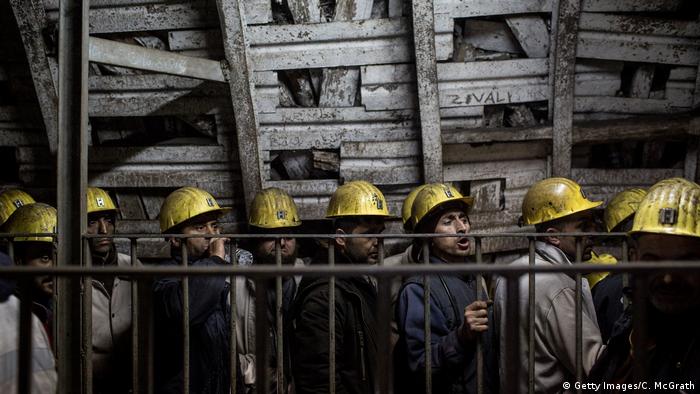Working conditions differ internationally huge. A new study, which evaluates data from 41 countries, but also comes to the conclusion that there are also many similarities.

The study “work conditions in a global perspective” covers 41 countries with around 1.2 billion factory to make and is the result of a collaboration between the UN belonging to the International labour Agency, ILO and Eurofound, an EU Foundation for the improvement of living and working conditions.
Were taken into account both workers, employees and self-employed with and without Employees in the 28 countries of the European Union (EU), China, USA, South Korea, Turkey and the Latin American countries of Argentina, Chile, Uruguay, Costa Rica, El Salvador, Guatemala, Honduras, Nicaragua and Panama.
“In order to understand working conditions, we need to measure you”, write to the ILO Director Guy Rider and Eurofound Director Juan Menéndez-Valdés, in their joint Foreword. The data could then help to identify transnational patterns and to learn from each other.
Hard to compare
The study is based on the already existing surveys in the countries studied. This raises some problems, because not all were asked the same questions. In addition, the countries in the level of development is vastly different. This affects not only the prosperity, but also the structure of the national economy.
Some examples: In the USA, the EU and South Korea is making agriculture work for less than five percent of the people in agriculture, in some Latin American countries it is almost 30 percent. The self-employed are in the USA (ten percent) and the EU (15 per cent) clearly in the minority. In Honduras or Nicaragua, half of the working population, however, is almost independent.

Women worldwide still earn less than men, according to the study
The study examines seven aspects: the physical condition of the workplace, the intensity of the work, the quality of the working time, the social environment, skills and training, prospects and earnings.
Between the countries studied, the working time varies in a strong way. In South Korea, Turkey and Chile, around half of the respondents claimed to work more than 48 hours per week; in the EU, there were only 17 percent.
At the same time, there are differences in flexibility. So 70 per cent of the workforce in South Korea stated that they can easily be an hour or two take time off to do personal or family Affairs. In the EU, the USA and Turkey, this value varies between 20 and 40 percent.
Around a third of respondents in the EU and the USA, but also in Turkey, El Salvador and Uruguay stated that they are struggling in the Job with time pressure and a high Tempo.
Women: More work, less money
Health risks at the workplace across countries often. More than half of the respondents complaining of poor posture, such as by repetitive Hand and arm movements, and a quarter-over is often too high or too low temperatures at the workplace. From China, data were not available.
Across countries, the finding is that low-skilled Workers only get a few opportunities to improve their qualifications. In the US, the EU and Uruguay of employees reported between 72 and 84 percent to learn on the Job New. The proportion was significantly lower in Turkey (57 percent), China (55 percent) and South Korea (30 percent).

Turkish miners in Zonguldak. Around a quarter of the Turkish worker is exposed to in the Job, smoke, and dust, according to the study
According to the study, the data from all countries show that women earn significantly less than men; in the case of the most poorly paid Jobs, women are also represented disproportionately.
In addition, women spend significantly more time on unpaid work. This includes the budget, take Care of members as well as club and charity work. In the case of women in Germany, this unpaid work makes every day four and a half hours and corresponds, according to the study, roughly the international average. Men work, however, 109 of the minutes of the day without pay.
More data urgently needed
In the United States and the EU of up to twelve percent of the respondents complaining of verbal abuse, humiliation or bullying in the workplace. In Turkey and South Korea, where comparable questions were asked, were these values are significantly lower (up to seven per cent). In the Latin American countries, other data were collected, up to four percent of the workers complained of physical violence in the workplace.
Overall, around 70 percent of the respondents rated their supervisors more positively and also praised on a high level of support through colleagues.
The ILO and Eurofound, all countries called for similar surveys to measure the quality of work. This is an essential conditions to be able to recommendations for action for the policy.
“Good working conditions contribute to the well-being of employees and to the success of companies,” said Manuela Tomei of the ILO. “A better understanding is an important step in order to achieve decent working conditions for all. This is especially true in a time of new technologies and the world of work forms change.”